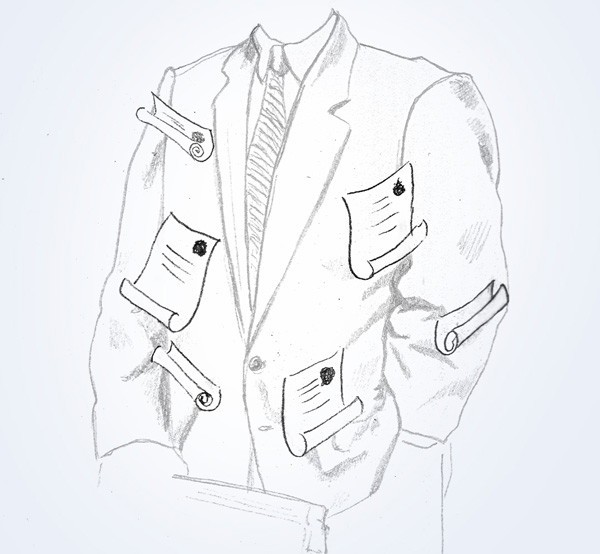Honorary degrees recognize achievements in a wide range of areas
Students’ interest considered when deciding who gets an honorary PhD
Having received 15 honorary degrees from universities across Canada and the U.S., University of Winnipeg President and Vice-Chancellor Lloyd Axworthy considers them all special.
“Each one of them is very different,” he said. “It is a different university and a different student body ... you get to meet.”
He has always tried to learn as much as he can about the university awarding him an honorary doctorate.
But sometimes, it’s all just good fun.
He enjoyed the unique celebration at Memorial University of Newfoundland, where he received an honorary degree last year.
“I had a terrific time,” he said. “I drank beer and had fish and chips on St. John’s harbour.”
His honorary degrees have been for various political and humanitarian accomplishments.
In addition to being a recipient, Axworthy heads the U of W selection committee for honorary degrees. He said that when choosing degree recipients from the pool of nominated individuals, the committee looks for people who can set positive examples for students.
One award is presented at each faculty’s convocation ceremony.
“We try to choose someone who might be of particular interest to students in the graduating classes of those fields,” he said.
Valerie Gilroy, corporate secretary for the board of regents and the senate, is in charge of co-ordinating and administering support for the honorary degrees committee. She said that often the recipients are a diverse group.
“There is a whole range of areas where a person might be considered successful or considered worthy of an honorary degree,” she said, adding that people can be honoured for their achievements in politics, arts, science or community work – to name a few.
Gilroy said that usually, but not always, the recipient has some connection to the U of W.
David Bergen, acclaimed author and U of W alumnus, received an honorary degree from the U of W in 2007.
“It was very much an honour to get it,” he said. “I don’t have a doctorate of any sort, so this is the only kind of doctorate I have.”
While it is certainly an achievement to receive an honorary PhD, it’s not the same as the real thing.
Axworthy, who earned his PhD in political science from Princeton University, attested to that.
“It was much tougher,” he said. “It took a lot more work.”
Gilroy said that all recipients of honorary degrees technically have the privilege of calling themselves doctor, although there are no real academic credentials behind that title.
“You wouldn’t be able to get a job ... based on an honorary degree,” she clarified.
Bergen said he would never consider giving himself that title.
“That would be pretentious and presumptuous,” he said.
Published in Volume 64, Number 25 of The Uniter (April 1, 2010)







